1. Elvis Presley – The King of Controversy
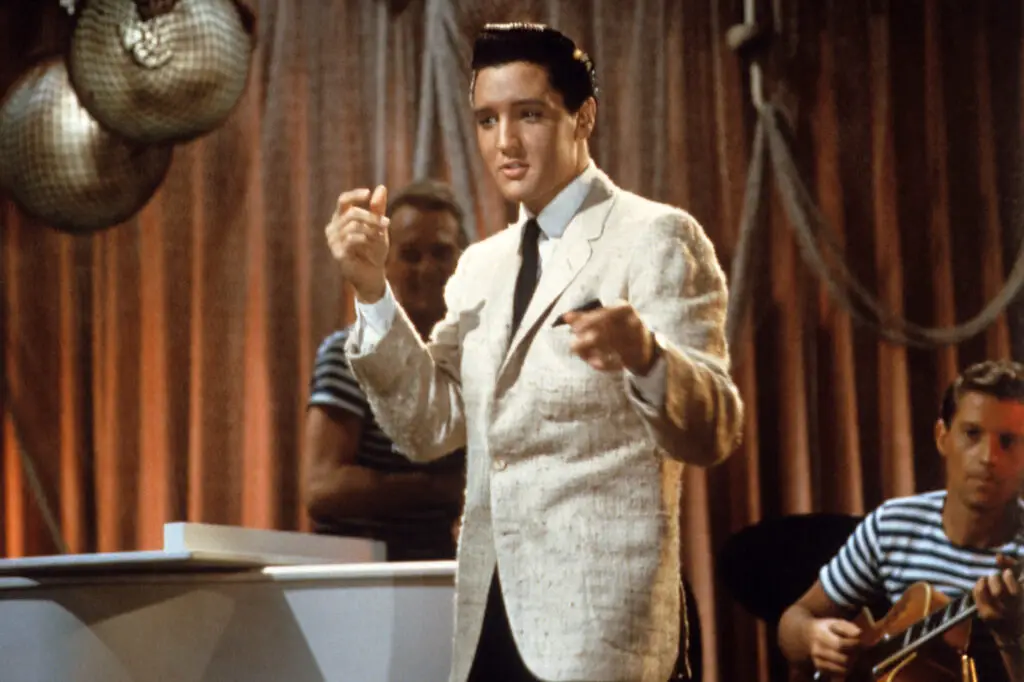
Elvis Presley, often referred to as the King of Rock ‘n’ Roll, had a complicated relationship with the airwaves in the early years of his career. When he first hit the mainstream, his hip-shaking moves caused a stir, with many conservative radio stations condemning his provocative style. In fact, the infamous moment when Elvis appeared on The Ed Sullivan Show with his gyrating hips was considered so inappropriate that a number of radio stations refused to air his performances. They argued that his seductive stage presence was morally corrupting the youth, and they tried to shut him down at every turn. Even though he was gaining popularity by the day, this backlash led to some major radio stations pulling his music off the airwaves explains American Songwriter.
However, despite being banned from many stations, Elvis didn’t let the criticism slow him down. He pushed forward, captivating audiences with his charisma and undeniable talent. Eventually, his impact on the music industry became undeniable, and the bans gradually faded. His powerful voice and musical talent were enough to break down the walls of censorship. Over time, he became not just a radio sensation but an enduring symbol of rebellion and youth culture. In the end, Elvis Presley proved that even being banned from the airwaves couldn’t stop the legend from being born. He remains one of the most influential artists in history, still adored by millions of fans worldwide.
2. The Beatles – Too Hot for the Radio Waves
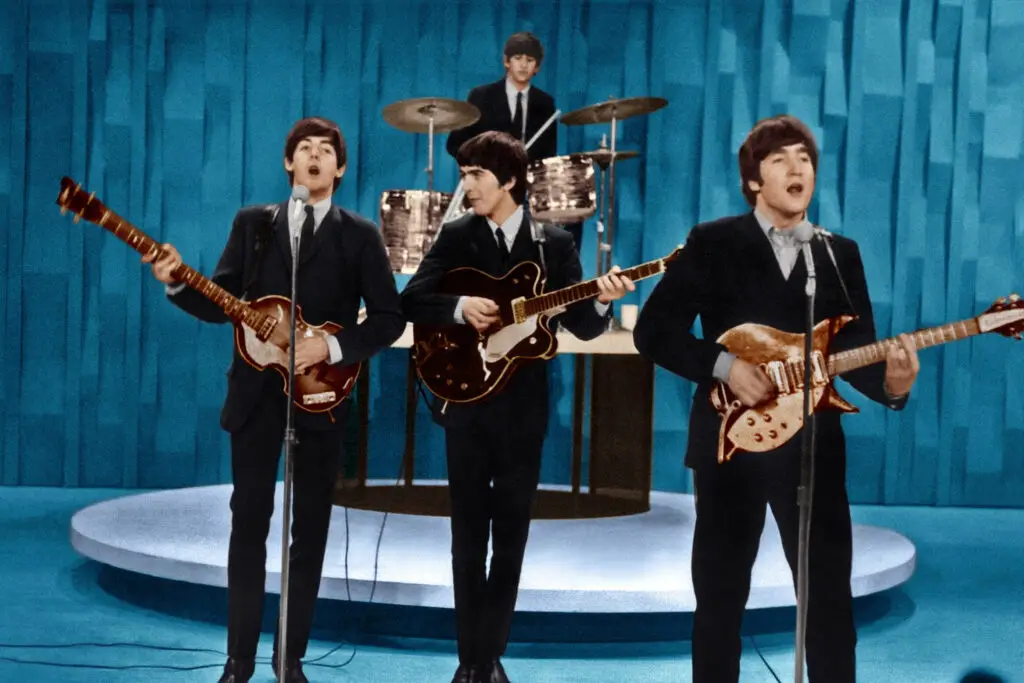
The Beatles, the iconic British band that changed the face of rock music, experienced their own struggles with being banned from radio. Their rise to fame was swift and transformative, but it wasn’t without controversy. One of the most well-known instances was when their song “Lucy in the Sky with Diamonds” was banned by many radio stations due to its supposed drug references. The title’s acronym, LSD, led to speculation that the band was promoting drug use. Despite John Lennon’s insistence that the song was about a drawing his son made, the backlash was real, and radio stations chose to play it safe by removing it from their playlists says Far Out Magazine.
The Beatles faced other censorship challenges as well, particularly in America. Their political and social messages were sometimes seen as too radical or subversive, leading certain radio stations to reject songs like “Revolution.” At the height of Beatlemania, radio stations couldn’t help but recognize the power of their music, but they also wanted to protect their audiences from what they viewed as potential harmful influences. Still, the boys from Liverpool didn’t let it hinder their success. They became masters of reinvention, continuing to push boundaries with albums like Sgt. Pepper’s Lonely Hearts Club Band. Ultimately, the Beatles’ music transcended the restrictions, and they became one of the most beloved and influential bands in history.
3. Billie Holiday – A Voice of Dissent
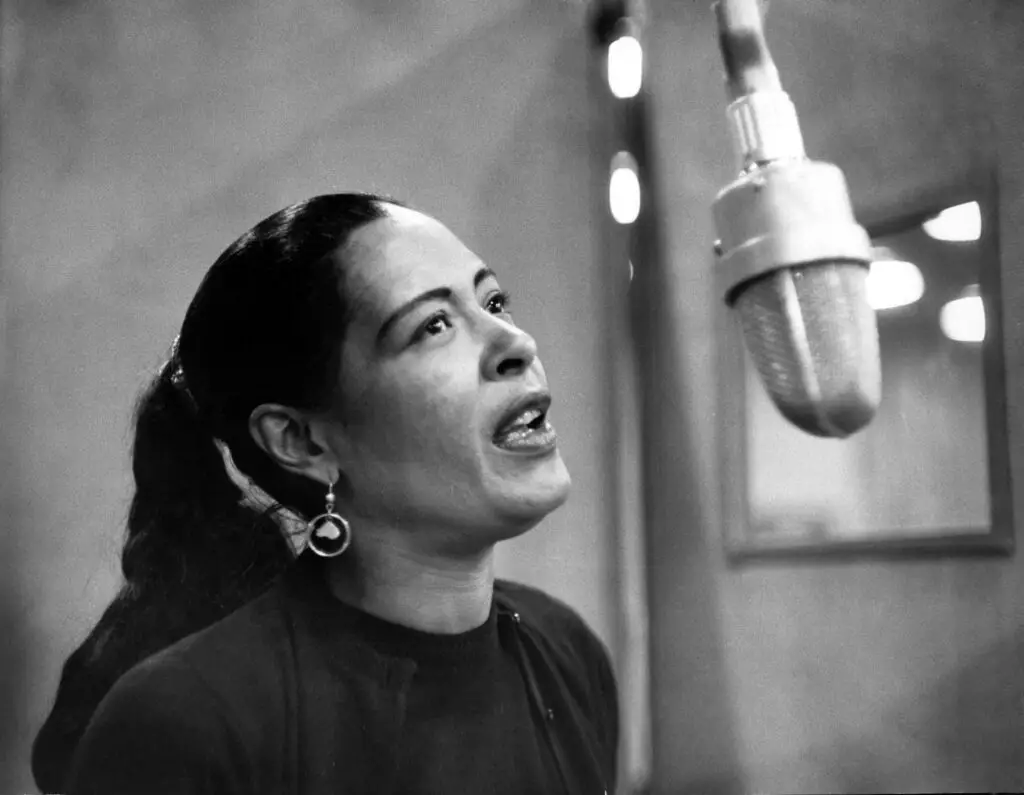
Billie Holiday was an artist who didn’t shy away from addressing the struggles of African Americans, and this got her into trouble with radio stations. One of her most famous songs, “Strange Fruit,” about the lynching of African Americans in the South, caused an uproar when it was released in 1939 explains PBS. Many radio stations refused to play it because of its controversial and politically charged subject matter. The song was deeply unsettling, and its stark portrayal of racism made people uncomfortable. Some even went so far as to label Holiday as unpatriotic, believing her song was a direct attack on American values.
But despite the pushback, “Strange Fruit” became an anthem of sorts, and Billie Holiday’s ability to tackle social issues through music was undeniable. Her emotional delivery and courage in speaking out on the injustices of the time gave her a place in the history books, and over time, the song gained the respect it deserved. In a way, the radio bans only served to amplify the message of the song, forcing people to listen, whether they liked it or not. Billie Holiday’s influence went beyond music, and her legacy as a pioneer for civil rights is cemented. She may have been banned from the airwaves, but her voice and her message could never truly be silenced.
4. The Sex Pistols – A Punk Revolution
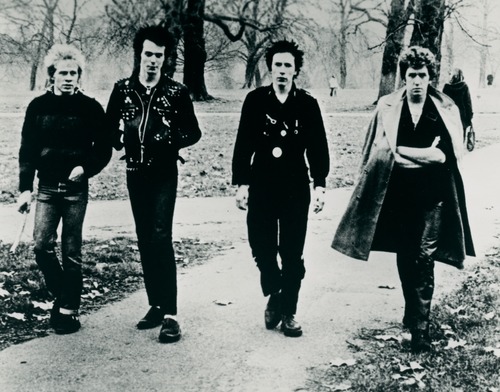
The Sex Pistols were the epitome of rebellion in the late ’70s, and radio stations weren’t ready for them. When they released “God Save the Queen” in 1977, the British punk band sparked a cultural firestorm. The song’s lyrics criticized the British monarchy and the establishment, and its raw energy embodied the anti-authoritarian sentiment of the punk movement. Radio stations in the UK were quick to ban it, as they feared the backlash from the government and the monarchy. The BBC, in particular, refused to play the song, considering it too offensive and unpatriotic. But rather than quashing their popularity, the ban only made the song more iconic.
Despite the censorship, “God Save the Queen” became one of the defining anthems of the punk movement. The Sex Pistols were unapologetically confrontational, and they had no intention of being controlled by the mainstream media. Their sound was aggressive, their attitude even more so, and the radio couldn’t ignore them forever. The ban only fueled their notoriety, and their music resonated with a generation of youth who felt similarly disillusioned by society. The Sex Pistols’ legacy remains strong, and their impact on punk rock culture is immeasurable, proving that sometimes, the louder the ban, the more powerful the message adds BBC.
5. Chuck Berry – Rock ‘n’ Roll Rebel
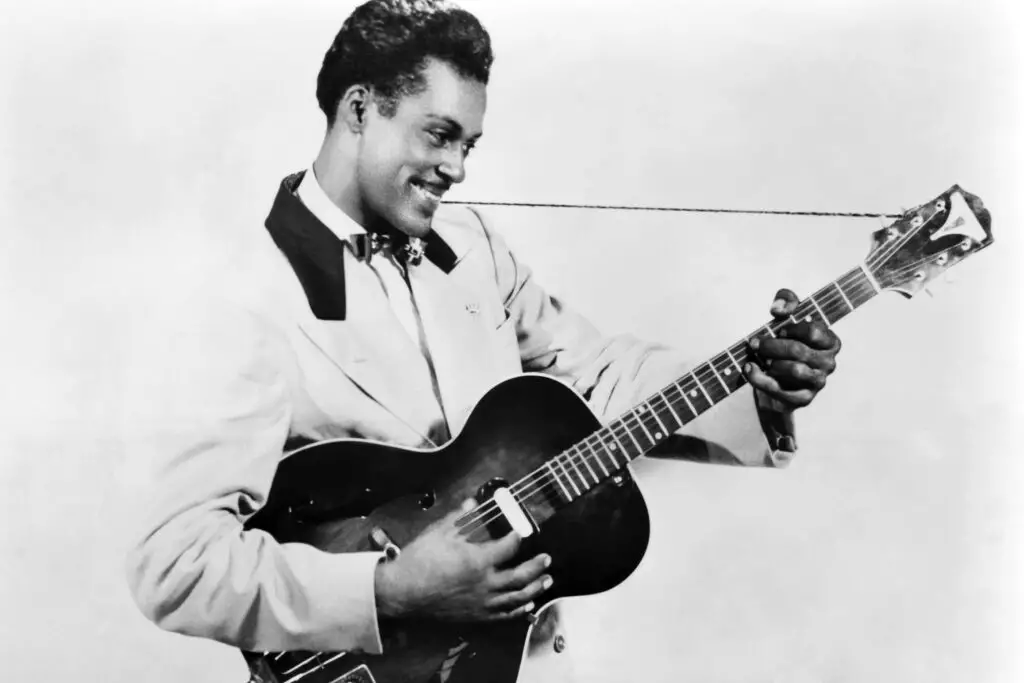
Chuck Berry is widely regarded as one of the pioneers of rock ‘n’ roll, but he was no stranger to being banned from the airwaves. In the early stages of his career, his music was considered too provocative for radio stations, particularly because of his lyrics, which were often about youthful rebellion and love. Songs like “Maybellene” and “Roll Over Beethoven” challenged the status quo and presented a fresh take on rhythm and blues. While his music was wildly popular among young people, some radio stations weren’t keen on the idea of playing his songs, fearing they would incite unruly behavior.
Despite being banned from certain stations, Chuck Berry didn’t back down. He continued to perform and create music that shaped the future of rock ‘n’ roll. His energetic guitar playing, catchy melodies, and charismatic stage presence made him a legend, and his influence can still be felt in rock music today. Radio may have tried to restrict him, but Chuck Berry’s sound was just too powerful to ignore. His legacy as a musical innovator and a trailblazer for African American artists in rock is solidified, and his contributions to the genre will never be erased.
6. The Doors – Too Controversial for the Airwaves
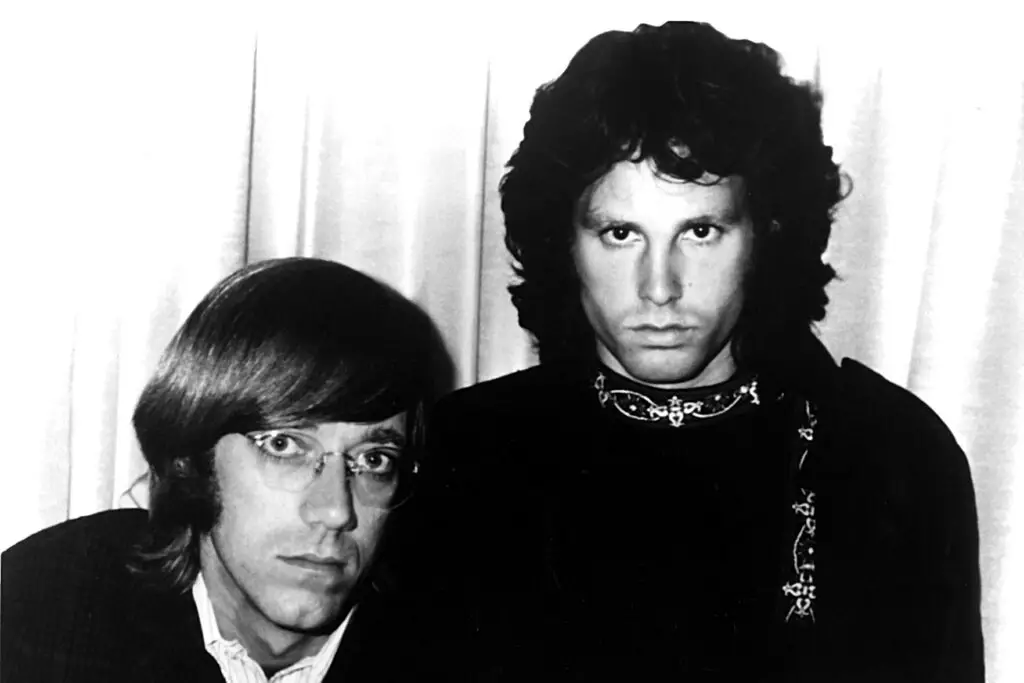
The Doors were a band that thrived on pushing boundaries, and their music often stirred up controversy, especially when it came to radio airplay. One of the most infamous examples of this occurred with their song “Light My Fire,” which was a massive hit but also caused some issues with radio censors. The song’s lyrics were considered by some to be suggestive and too provocative for the airwaves. Despite the song’s success, some stations refused to play it, citing concerns over its sexual innuendo. However, this didn’t stop the band from becoming one of the most iconic acts of the 1960s.
The controversy didn’t end there. The Doors’ lead singer, Jim Morrison, was known for his rebellious and unpredictable behavior, which often led to clashes with authorities. His infamous incident at a concert in Miami, where he allegedly exposed himself on stage, only added fuel to the fire. The band’s music, which often dealt with themes of rebellion, freedom, and self-destruction, was a challenge for conservative radio stations. But despite the censorship, The Doors’ music found a way to reach their audience. Their sound and Jim Morrison’s charisma made them a defining force in rock history, and their music is still celebrated today.
7. Ray Charles – The Genius of Soul
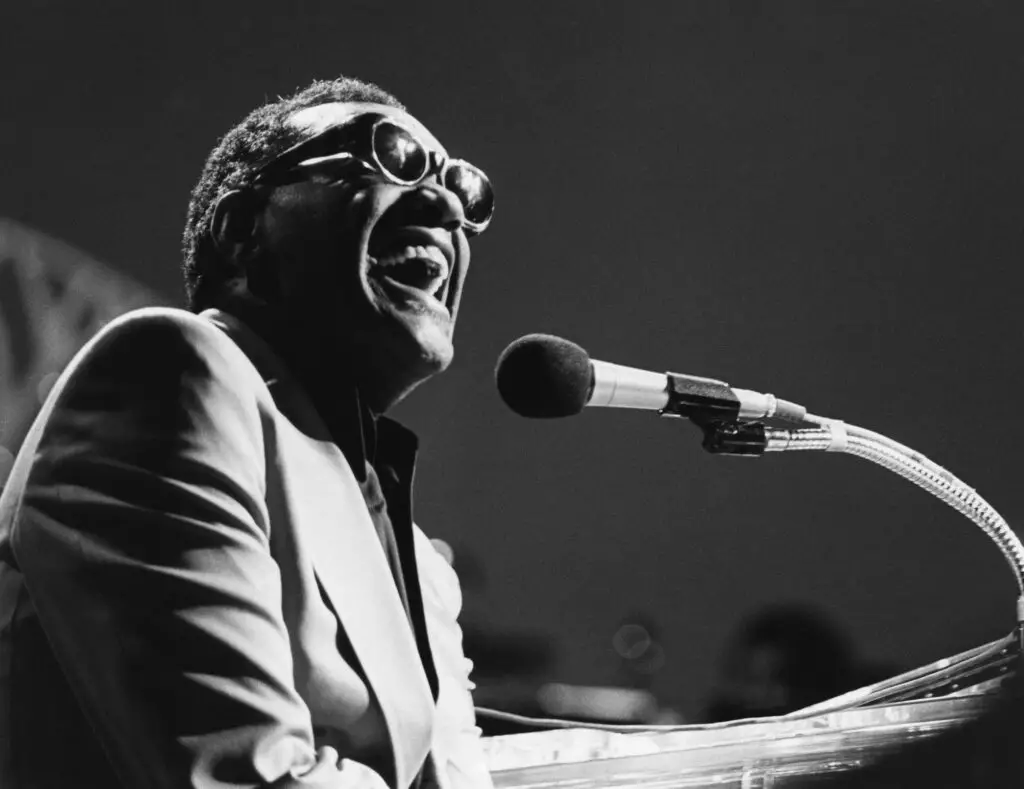
Ray Charles, the legendary soul singer, faced his own struggles with radio censorship, particularly due to his unapologetic style and genre-blending music. One of his most notable songs, “I Can’t Stop Loving You,” was initially banned by some radio stations for its portrayal of heartbreak and longing. These stations were concerned that the song’s raw emotional depth would be too much for their listeners to handle. Despite the initial pushback, the song became a massive hit, proving that the public wasn’t as opposed to his emotional vulnerability as the radio stations had feared.
Ray Charles was an artist who constantly pushed the boundaries of genre, blending gospel, jazz, blues, and country music to create a sound that was uniquely his own. His fusion of styles didn’t always sit well with the more conservative radio stations of the time. However, his influence grew over the years, and he is now regarded as one of the greatest musicians of all time. Ray Charles broke through the radio barriers and became a beloved figure, not just for his music but for his ability to connect with audiences on a deeply personal level. His legacy continues to inspire artists across genres, and his music remains timeless.
8. Prince – Too Provocative for the Airwaves
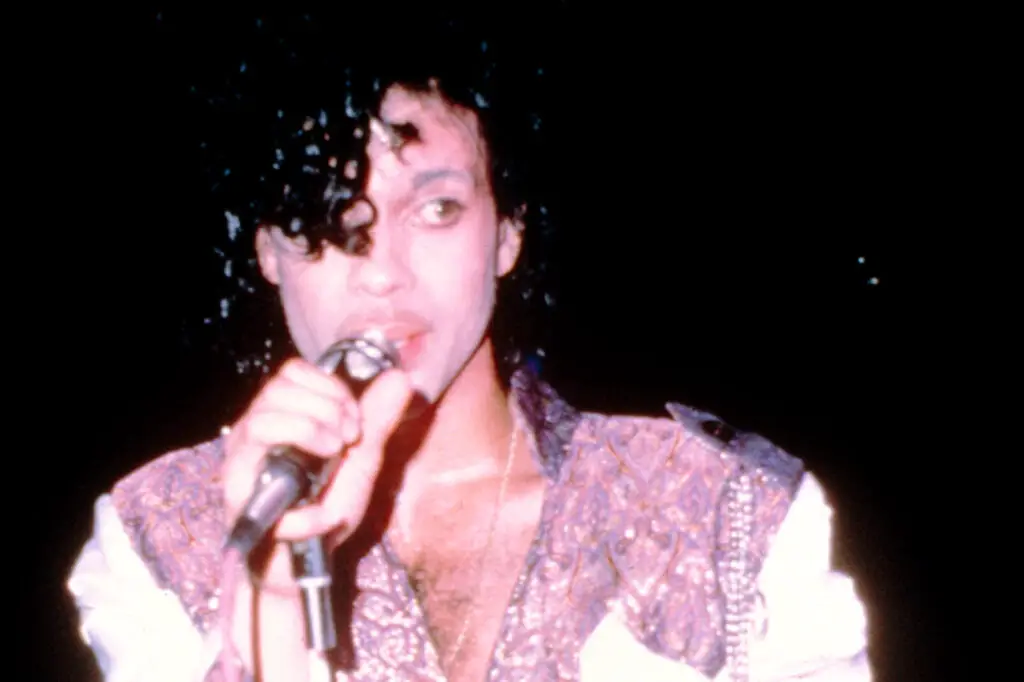
Prince was a true musical genius who always had a knack for pushing the envelope, especially when it came to his lyrics. His song “Darling Nikki,” from his iconic Purple Rain album, was one of the most controversial songs in his career. The song, with its sexually explicit content, was banned by many radio stations upon its release in 1984. The song’s frank discussion of sexual desire was deemed inappropriate for mainstream radio at the time, leading to its exclusion from many playlists. However, this didn’t stop Prince from becoming a global superstar.
Instead of being deterred by the radio bans, Prince’s reputation as a boundary-pushing artist only grew. His unique blend of funk, rock, pop, and soul, combined with his flamboyant stage presence, made him an iconic figure in the music industry. He was never one to shy away from controversy and always seemed to embrace it, knowing that it only heightened his mystique. Despite the bans, Prince’s music continued to soar, and he maintained a loyal fanbase that appreciated his artistic freedom and innovation. His legacy as one of the greatest musicians of all time is undeniable, and his influence on modern pop and R&B is immeasurable.
9. Madonna – The Queen of Reinvention

Madonna has long been known for her ability to reinvent herself, but some of her most iconic moments were also her most controversial. When she released “Like a Prayer” in 1989, the song’s music video, which featured religious imagery, caused an uproar. The video depicted Madonna dancing in front of burning crosses and engaging with religious symbols in ways that some saw as sacrilegious. This led to many radio stations banning the song, arguing that it was offensive to religious listeners. Despite the backlash, the song became a major hit, further cementing Madonna’s place as a cultural force.
Madonna’s career has been filled with moments of controversy, but she’s always used those moments to her advantage. Each time she faced criticism, she turned it into an opportunity for artistic expression and pushed the boundaries even further. The radio bans didn’t stop her from becoming one of the best-selling musical artists of all time. Madonna’s ability to confront social taboos and reshape the music landscape made her a pioneering figure. Her influence on pop music and the music industry as a whole is immense, and she remains a symbol of empowerment and reinvention.
10. N.W.A. – The Voice of the Streets
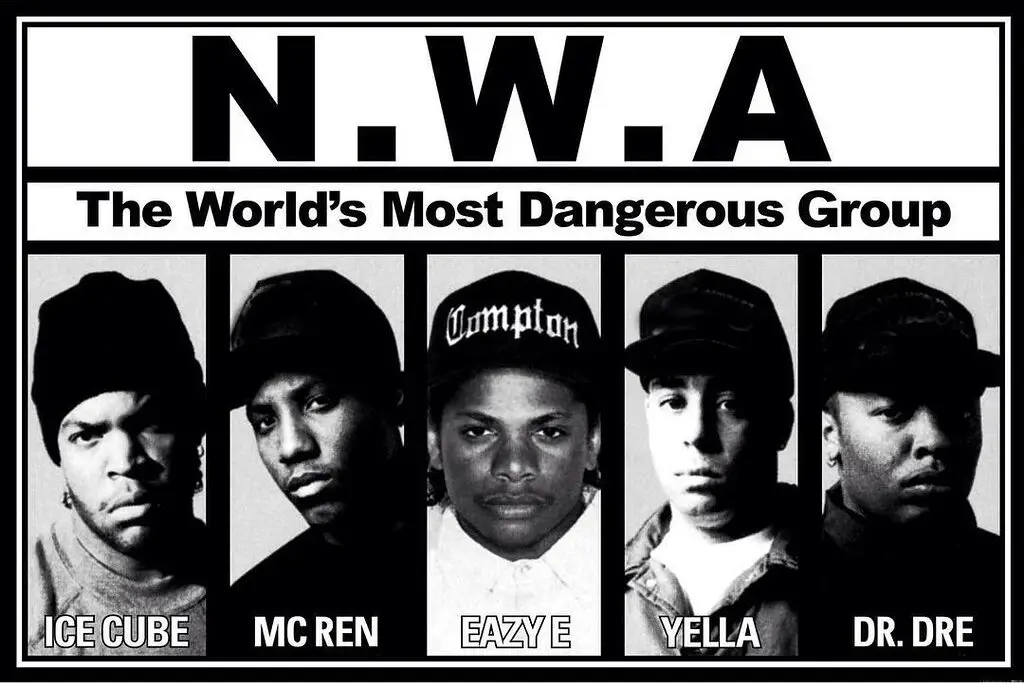
N.W.A., the legendary rap group from Compton, California, is another example of artists who faced intense censorship. Their album Straight Outta Compton, released in 1988, contained the notorious track “F**k Tha Police,” which was a direct protest against police brutality and the oppression of African Americans. The song, with its raw language and defiant tone, led to widespread radio bans across the United States. Many stations refused to play the song, fearing the public backlash and possible legal consequences. Despite the censorship, N.W.A. became one of the most influential rap groups in history, with Straight Outta Compton becoming a groundbreaking album for the genre.
N.W.A.’s willingness to speak out against injustice resonated with a generation of listeners who felt alienated by the mainstream. While their music was banned by many radio stations, it still found a way to reach the people who needed to hear it the most. The group’s unapologetic attitude and fearless approach to music created a new wave of hip-hop that influenced countless artists in the years to come. Their impact on both the rap genre and social activism is undeniable, and they remain one of the most important groups in the history of music.
11. Jimi Hendrix – Electrifying but Banned
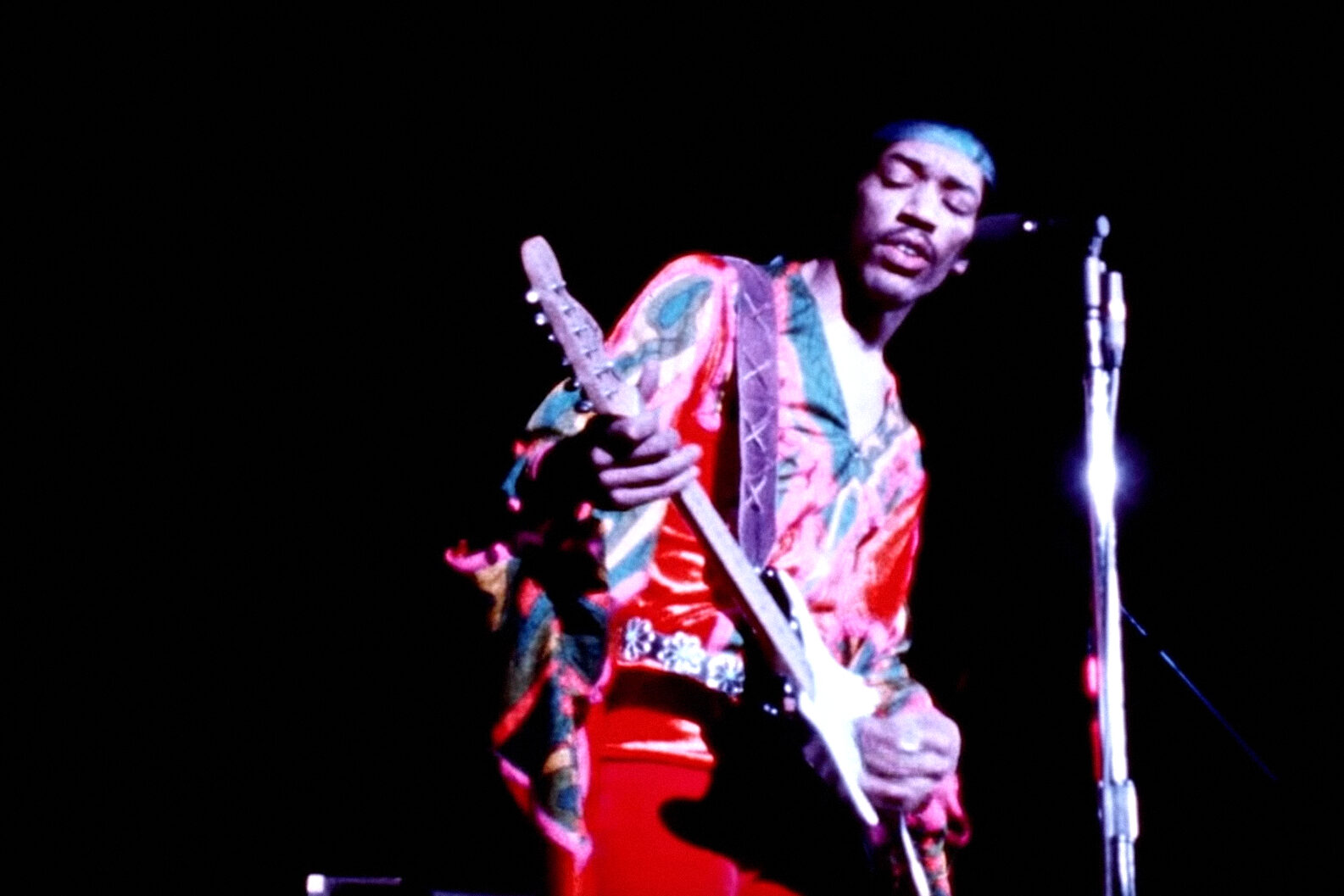
Jimi Hendrix, one of the greatest guitarists of all time, was no stranger to controversy, especially when it came to his music’s radio airplay. One of the most famous moments of censorship came with his song “Purple Haze,” which was considered too psychedelic and, by some, potentially dangerous for the airwaves. The song’s surreal lyrics and mind-bending sound effects led to speculation about drug references, and some radio stations were quick to ban it. Despite this, “Purple Haze” became one of Hendrix’s signature songs and solidified his place as a musical innovator.
Hendrix’s music was always pushing boundaries, whether through his groundbreaking guitar techniques or his ability to fuse blues, rock, and psychedelia into something entirely new. His performances were legendary, and his experimentation with sound challenged the norms of the time. Despite the bans and controversy surrounding his music, Hendrix’s popularity grew, and he became a cultural icon. His influence on rock music is immeasurable, and his legacy as one of the greatest musicians ever remains intact. Jimi Hendrix’s music may have been banned at times, but it’s clear that his talent and vision couldn’t be contained by radio.
12. Eminem – Shocking the Radio

Eminem is no stranger to controversy, and his career has been marked by moments of censorship, especially when it comes to his radio-friendly hits. When his song “Kim,” a graphic and violent track about a fictional encounter with his ex-wife, was released, it caused an uproar. Many radio stations deemed the song too disturbing and explicit to air, pulling it from their playlists. Despite the backlash, Eminem’s popularity didn’t wane, and he continued to challenge the boundaries of mainstream rap. His unapologetic approach to music and his willingness to tackle difficult subjects made him one of the most polarizing figures in hip-hop.
Eminem’s music often addressed personal pain, societal issues, and controversial topics, making him a target for radio bans and public criticism. However, his raw, unfiltered lyrics spoke to millions of fans who saw his music as an honest reflection of their own struggles. His ability to connect with listeners, even through the most controversial material, helped cement his place as one of the most influential artists of his generation. Eminem may have been banned from some radio stations, but his impact on the music industry is undeniable. His career is a testament to the power of music to push boundaries and provoke thought.
13. Kate Bush – A Mystic Too Much for Radio
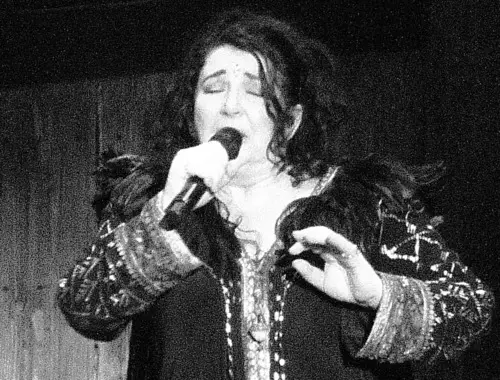
Kate Bush, the British singer-songwriter known for her ethereal voice and experimental sound, faced her own struggles with radio censorship. When her song “Wuthering Heights” became a huge hit in 1978, it quickly established her as an alternative pop icon. However, the song’s haunting melodies and unconventional style were considered too unusual for mainstream radio. Many stations hesitated to play it, and some outright refused to give it airtime, citing its departure from typical pop structures. Despite the initial resistance, “Wuthering Heights” went on to become a major success, and Kate Bush’s career took off.
Bush’s music often delved into themes of mythology, literature, and fantasy, which didn’t always sit well with radio programmers who preferred more accessible pop tunes. Her other songs, like “Running Up That Hill,” further pushed the boundaries of what was considered mainstream radio material. However, the bans only helped to solidify her status as a boundary-pushing artist. Her influence on pop and alternative music is immense, and her ability to merge art and music continues to inspire new generations of musicians. Kate Bush remains a unique and beloved figure in music, and her groundbreaking approach to songwriting has made her a true legend.
